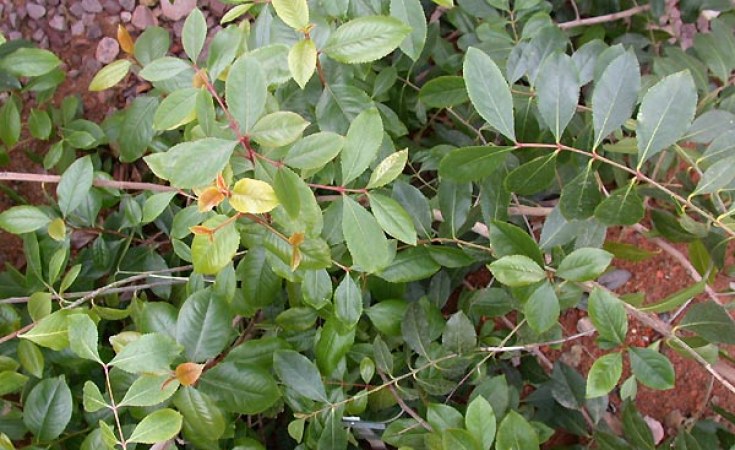An upcoming documentary takes a closer look at qat's cultural, political and economic significance.
Despite the worldwide popularity of qat, a natural amphetamine-like stimulant, relatively little is known about its international trade and economic role in the Horn of Africa where it grows.
Leaves of the Horn, a new documentary, hopes to shine light on the drug by exploring its medicinal, cultural, economic and political effects. Made by 101 Film - a group of Italian journalists, anthropologists and filmmakers - the film explores the economic forces that drive the qat trade and the consequences of that trade across the world.
Qat, grown mostly in Kenya and the Ethiopian highlands, is a naturally occurring amphetamine which, when chewed and sucked, stimulates a mixture of effects ranging from dreaminess to greater alertness. The appeal of qat lies in its alleged ability to both increase energy levels and mental clarity, allowing the user to achieve more under less stress and also, conversely, in its alleged ability to allows users to relax and unwind, making the passage of time feel irrelevant. Qat also plays an important part in the life of many East African communities and is used for medicinal, cultural and religious purposes.
Side-effects of chewing qat, however, range from tooth rot, high blood pressure, and mouth cancer to violence and potentially suicidal levels of depression. It has been classified a 'drug of abuse' by the World Health Organisation and is illegal in most European countries. Britain and the Netherlands are the main exceptions to this although the Dutch government have recently signalled plans to ban qat, and those who use qat in these countries tend to do so furtively.
Political links
The dangers of qat are not only limited to health issues however. In recent months, qat has increasingly been linked to terrorism in the Horn of Africa. The makers of Leaves of the Horn claim that the drug is responsible for bankrolling groups such as Somalia's militant Islamist al-Shabaab and the country's pirates.
Qat is used in Somalia by nearly 70% of the country's male population and, according to director David Morandini, al-Shabaab takes advantage of this by imposing taxes on the trade of qat to help fund their operations. Although the Islamist group may be against the idea of qat on ideological grounds, Morandini argues that, on a practical level, qat is seen as an appropriate financial means - and possibly medicinal stimulant - for the militants. "Exercising control over the import and distribution of qat means that al-Shabaab can raise money by selling it wholesale or retail, as well as levying taxes on imports, transport, licenses and much more," Morandini explained to Think Africa Press. Additionally, flights bearing quantities of the drug can also serve a convenient dual purpose of enabling the trade of weapons concealed within cargos. Somalia's pirates, on the other hand, explained Morandini, are thought to rely on qat in order to "diversify their income and launder ransom money".
Qat and development
These links have increased calls in some circles for the drug to be further illegalised, but for many in the Horn of Africa, qat is not so much an illicit source of funding or just a part of cultural practices, but a means to a livelihood.
As Leaves of the Horn explores, many East African farmers turned to growing qat after coffee prices plummeted in 2002, and today Ethiopia and Kenya's economies benefit considerably through the trade and export of qat. Furthermore, unlike coffee or cereal, qat can be sold straight after being harvested, and the crop is less susceptible to being eaten by insects or destroyed by disease.
The banning of the qat trade could therefore have serious implications for agriculturalists. Farmers in the Meru region of Kenya, for example, are currently concerned at the Dutch government's signals last January that they would ban the drug this year. Kenyan farmers have benefited from the demand for qat amongst the Netherland's Somali diaspora and a ban could adversely affect the Meru economy.
Furthermore, some fear that the UK could be next to ban the plant, and the issue of khat has arisen in political debates a number of times in recent years. Some, however, believe the British government may be reluctant to ban the drug given the important role it plays in the cultural lives of the UK's Yemeni, Ethiopian and Somali communities.
Leaves of the Horn looks to be a thorough and stimulating exploration of an often over-looked issue. The debates around qat are complex and touch on matters relating to culture, identity, development and trade, as well as security. It is a multi-faceted issue with no clear solutions. One hopes Leaves of the Horn will at least help make the debate an informed one.
Horn of Africa Analyst
Maddy Fry is a freelance journalist who has written for the Daily Telegraph, openDemocracy.net and the Financial Times. She has a degree in History from the School of Oriental and African Studies, London.


